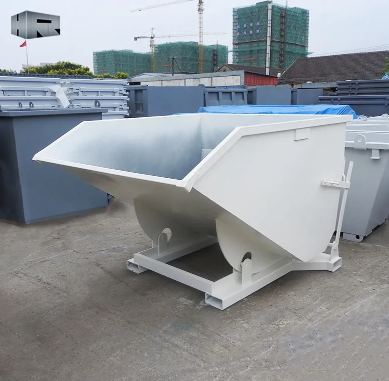
Self-tipping bins have the potential to revolutionize the way Waste Management is conducted. With advancements in technology and a growing focus on sustainability, these innovative bins offer a more efficient and convenient way to handle waste disposal.
One of the key benefits of self-tipping bins is their ability to autonomously empty themselves, reducing the need for manual labor and minimizing the risk of injury for waste management workers. This not only streamlines the waste collection process but also increases overall efficiency and productivity.
Furthermore, self-tipping bins are equipped with sensors that can monitor fill levels and schedule pickups accordingly. This allows for more strategic planning and optimization of waste collection routes, reducing fuel consumption and emissions. By maximizing the capacity of each bin and minimizing unnecessary trips, self-tipping bins promote a more sustainable approach to waste management.
In addition, self-tipping bins are often equipped with compaction technology, which can significantly reduce the volume of waste and extend the bin's capacity. This can help to minimize overflow and littering, leading to cleaner and more hygienic public spaces.
Another advantage of self-tipping bins is their adaptability to different environments and waste streams. These bins can be customized to accommodate various types of waste, such as recyclables, organic waste, or hazardous materials. By segregating waste at the source and diverting it to the appropriate disposal facilities, self-tipping bins promote a more sustainable waste management system.
Moreover, self-tipping bins can be integrated with smart technologies, such as IoT devices and cloud-based platforms, to enable real-time monitoring and data analytics. This data-driven approach allows waste management companies to track performance metrics, analyze trends, and make informed decisions to optimize their operations.
Despite their numerous benefits, there are some challenges that need to be addressed in implementing self-tipping bins on a larger scale. One of the main barriers is the initial cost of investment, which may be prohibitive for some municipalities or waste management companies. However, the long-term cost savings and environmental benefits of these bins could outweigh the upfront expenses.
Furthermore, there may be concerns about the reliability and maintenance of self-tipping bins, especially in harsh environmental conditions or high-traffic areas. Regular maintenance and proper training for staff are essential to ensure the smooth operation of these bins and prevent potential breakdowns.
Overall, self-tipping bins have the potential to transform the future of waste management by offering a more efficient, sustainable, and cost-effective solution to handling waste. With advancements in technology and a growing awareness of environmental issues, these innovative bins could play a crucial role in creating cleaner, healthier, and more sustainable communities.




Komen
(0)